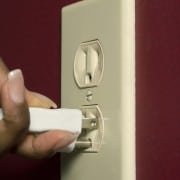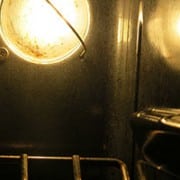National Electrical Safety Month
It’s May – and Tennessee’s electric cooperatives are celebrating National Electrical Safety Month. While safety for our members is top priority year-round, Electrical Safety Month is a time to acknowledge the importance of safety excellence.
This year, we’re focusing on electrical safety in the home. Electricity is the cause of over 140,000 fires each year, resulting in more than 500 deaths, 4,000 injuries and 1.6 billion in property damage, according to Electrical Safety Foundation International (ESFI).
There are many measures you can take to ensure the safety of your loved ones. Use these helpful tips from ESFI to safeguard your home.
In the kitchen
- Vacuum refrigerator coils every three months to eliminate dirt buildup that can reduce efficiency and create fire hazards.
- Ensure all countertop appliances are located away from the sink.
- All appliance cords should be placed away from hot surfaces. Pay particular attention to cords around toasters, ovens and ranges. Cords can be damaged by excess heat.
- The top and the area above the cooking range should be free of combustibles, such as potholders and plastic utensils. Storing these items on or near the range may result in fires or burns.
Light the way to safety
- The wattage of the bulbs you use in your home should match the wattage indicated on the light fixture. Overheated fixtures can lead to a fire.
- Check lamp cords to make sure they are in good condition – not damaged or cracked. Do not attempt to repair damaged cords yourself. Take any item with a damaged power cord to an authorized repair center.
- Extension cords should not be used to provide power on a long-term or permanent basis. Have additional receptacles installed by a professional to provide power where needed.
Be prepared
- Nearly two-thirds of fire deaths result from fires in homes without working smoke alarms. Smoke alarms should be located on every level of your home, inside each bedroom and outside each sleeping area.
- Test smoke alarms every month. Batteries should be replaced at least once a year – or sooner if indicated in the manufacturers’ instructions. All smoke alarms should be replaced at least every 10 years.
- Talk to your family about an emergency plan in the event of a fire in your home. If you have small children, include them in planning an emergency escape route – they are more likely to remember the plan if they’re involved in creating it.
Electrical safety awareness and education can save lives. For more tips and information about electrical safety, click here or visit www.esfi.org.









